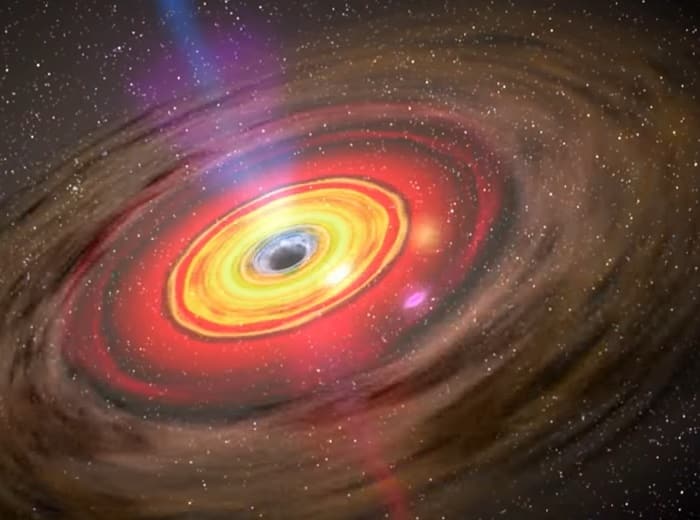Could our Milky Way galaxy be sucked into its own black hole? As there is a huge hole in the center of our galaxy having a mass of 4 million times more than the sun. Despite knowing about its existence, it took decades for astronomers to discover it, and the motion of the stars very close to it revealed the location of the black hole. The gravitational field of such a large mass pulls the surrounding regions and the light also has to change its path near it. It is often believed that black holes swallow the stars like a vacuum cleaner and leave no trace behind. But this is not true, if a star comes too close to a black hole, it breaks down and goes on falling deeper, and during this time its mass increases, and it becomes hotter and denser. In this vigorous process, most of its element is dispersed in space.
But the good thing is that such destructive events happen only after getting very close to the black hole. The stars away from it maintain a stable orbit, in the same way as the planets keep revolving around our sun. The effect of a black hole's gravitational field decreases with distance, and how strong it is, basically depends on its mass. If our Sun itself turns into a black hole, then it will not affect the orbits of Earth, Mars, and other planets. Stars closest to the center of the Milky Way also maintain a stable orbit, but as they approach the Milky Way's black hole, their speed increases as the gravitational force pulling them increases. The stars of the Milky Way galaxy have been circling its center for billions of years and there is no doubt that they will continue to do so, that is, this home of ours, the Milky Way, is not going to disappear within its own gigantic black hole.













0 comments:
Post a Comment